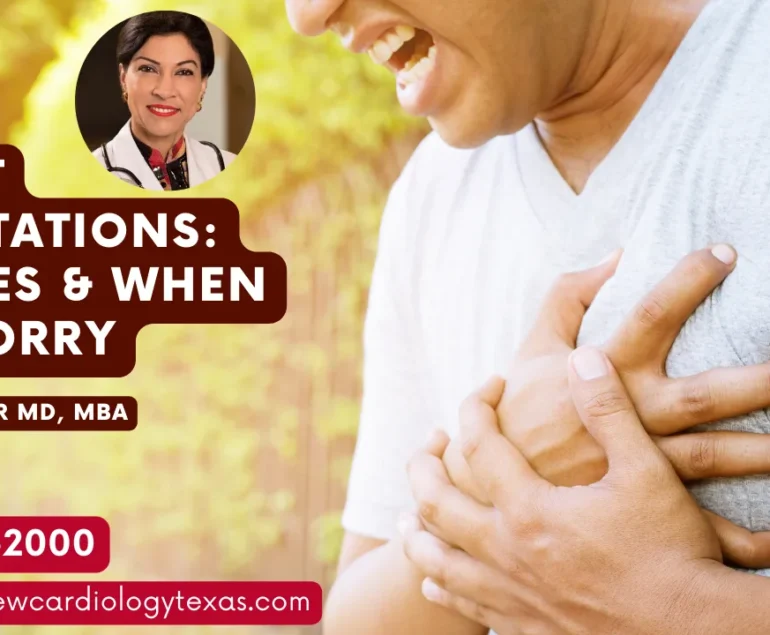The Worst Foods for Your Heart: What Cardiologists Warn Against
Cardiovascular disease remains the leading cause of death globally, responsible for nearly 18 million deaths each year. While genetics and lifestyle choices play a major role, diet is one of the most significant contributors to heart health. Eating the wrong foods regularly can increase blood pressure, raise cholesterol levels, promote inflammation, and contribute to plaque buildup in arteries. In this blog, we will explore the worst foods for your heart and why cardiologists strongly advise limiting or avoiding them.
1. Processed Meats
Processed meats like bacon, sausages, deli meats, hot dogs, and salami are high in saturated fats, sodium, and chemical preservatives like nitrates and nitrites. These compounds are linked to an increased risk of heart disease, hypertension, and even certain cancers.
Why They’re Harmful:
- High in sodium, which raises blood pressure
- Contain saturated fats that elevate LDL (“bad”) cholesterol
- Chemical preservatives may damage blood vessels
What Cardiologists Say:
Most heart experts recommend minimizing processed meats and opting for lean, unprocessed protein sources such as fish, chicken, legumes, and tofu.
2. Trans Fats and Partially Hydrogenated Oils
Trans fats are artificial fats created through hydrogenation, a process that turns liquid oils into solid fats. Although banned in many countries, they still exist in some packaged foods and fried items.
Found In:
- Margarine and shortening
- Packaged baked goods (cookies, pastries, doughnuts)
- Fried fast food
Why They’re Harmful:
- Raise LDL (bad) cholesterol
- Lower HDL (good) cholesterol
- Increase the risk of heart attacks and strokes
Cardiologist’s Note:
Avoid any product with “partially hydrogenated oils” listed in the ingredients. Even small amounts can be harmful over time.
3. Sugary Beverages
Soft drinks, sweetened teas, energy drinks, and fruit punches are major sources of added sugars in the modern diet. These sugars can contribute to weight gain, insulin resistance, and inflammation—all of which increase heart disease risk.
Why They’re Harmful:
- Lead to obesity, a major risk factor for heart disease
- Increase triglyceride levels
- Promote insulin resistance, raising the risk of Type 2 diabetes
Better Choices:
Replace sugary drinks with water, herbal tea, or naturally flavored sparkling water.
4. Refined Carbohydrates
Highly processed carbs such as white bread, white rice, and sugary cereals have a high glycemic index and lack fiber. They cause blood sugar spikes, increase hunger, and contribute to weight gain and inflammation.
Examples Include:
- White bread and rolls
- Pasta made from white flour
- Instant rice and breakfast cereals
- Snack crackers and chips
Why They’re Harmful:
- Increase belly fat
- Cause blood sugar fluctuations
- Raise the risk of metabolic syndrome
Healthy Alternatives:
Whole grains like oats, quinoa, brown rice, and whole wheat bread are much better for your heart.
5. Excessive Salt (Sodium)
While some sodium is essential for body function, excessive intake—mostly from processed and restaurant foods—can increase blood pressure and strain the heart.
High-Sodium Foods:
- Canned soups and instant noodles
- Frozen meals and pizzas
- Pickled or cured foods
- Restaurant and takeout food
Cardiologists Warn:
Adults should aim for no more than 2,300 mg of sodium per day, with an ideal limit of 1,500 mg for most adults, especially those with hypertension.
6. Deep-Fried Foods
Fried foods absorb large amounts of unhealthy fats during cooking. These foods are often prepared with oils high in trans fats and served with high-sodium seasonings and sauces.
Why They’re Harmful:
- High in calories and unhealthy fats
- Promote inflammation
- Increase LDL cholesterol and decrease HDL cholesterol
Examples Include:
- French fries
- Fried chicken
- Onion rings
- Fried snacks like samosas or pakoras
Better Alternatives:
Try baking, air frying, or grilling instead of deep frying.
7. Full-Fat Dairy Products
Milk, cheese, cream, and butter are sources of saturated fats, which can raise LDL cholesterol when consumed in large amounts.
Notable Offenders:
- Whole milk and cream
- Full-fat yogurt and cheese
- Butter and ghee
Why They’re Harmful:
- High in saturated fats
- Increase cholesterol levels
- May contribute to arterial plaque buildup
Healthy Swaps:
Choose low-fat or plant-based dairy alternatives such as almond milk, soy yogurt, or low-fat cheese in moderation.
8. Pastries and Baked Goods
These items are often loaded with refined flour, added sugars, and trans fats—all detrimental to heart health.
Examples Include:
- Cakes and cupcakes
- Doughnuts
- Croissants and puff pastries
- Packaged muffins
Why They’re Harmful:
- High in calories and sugar
- Contain unhealthy fats
- Lead to weight gain and blood sugar spikes
Tip:
Bake at home using whole-grain flours, natural sweeteners, and healthy oils like olive or avocado oil.
9. Red Meat
Red meats such as beef, lamb, and pork are high in saturated fat and cholesterol. Regular consumption is associated with increased heart disease risk, especially when grilled or charred.
Why It’s Harmful:
- Raises LDL cholesterol
- Linked to inflammation
- May contain added hormones and antibiotics
Cardiologist Recommendations:
Limit red meat to occasional servings. Opt for lean cuts and cook with heart-healthy methods like baking or steaming.
10. Alcohol (Excessive Consumption)
While moderate alcohol intake (especially red wine) has been debated for potential heart benefits, excessive drinking has clearly harmful effects.
Risks Include:
- High blood pressure
- Irregular heartbeats (arrhythmias)
- Cardiomyopathy (weakening of the heart muscle)
- Increased triglyceride levels
What’s Moderate?
Up to one drink per day for women and two for men. Always consult your doctor, especially if you have existing heart conditions.
Bonus: “Healthy” Foods That Aren’t So Healthy
Many foods marketed as “low-fat,” “sugar-free,” or “heart-healthy” can be deceptive.
Examples:
- Flavored yogurts with high sugar content
- Granola bars with refined sugars
- Low-fat products with added salt or artificial additives
Read Labels Carefully:
Always check the ingredients list and nutrition facts to make informed choices.
Final Thoughts: Choose Heart-Healthy Alternatives
Avoiding the worst foods for your heart doesn’t mean you have to sacrifice flavor or satisfaction. With a few adjustments, you can enjoy a delicious, balanced diet that supports cardiovascular health.
Top Heart-Healthy Foods to Focus On:
- Leafy greens (spinach, kale)
- Fatty fish (salmon, mackerel)
- Berries (blueberries, strawberries)
- Nuts and seeds (walnuts, flaxseeds)
- Whole grains (oats, quinoa)
- Olive oil and avocado
- Legumes (lentils, beans)
Simple Tips to Protect Your Heart:
- Cook more meals at home using fresh ingredients
- Read nutrition labels carefully
- Limit eating out, especially at fast food chains
- Practice portion control and mindful eating
Heart disease is largely preventable, and your daily food choices play a major role. By staying informed and making conscious decisions, you can take control of your heart health—one meal at a time.
Disclaimer: This article is for informational purposes only and does not replace professional medical advice. Always consult your healthcare provider before making significant dietary changes, especially if you have a medical condition.





